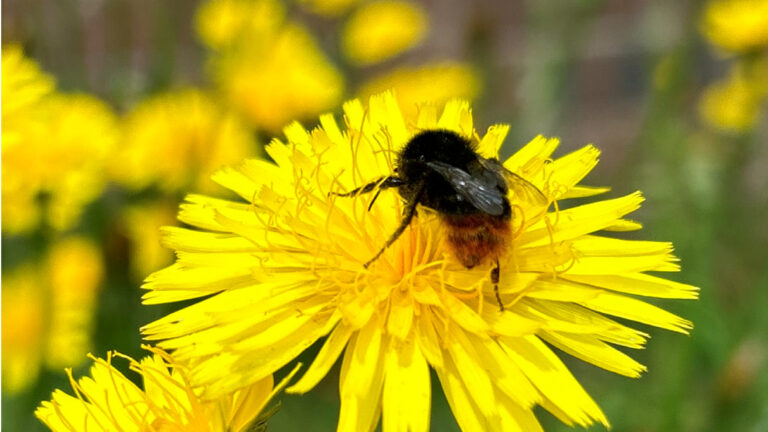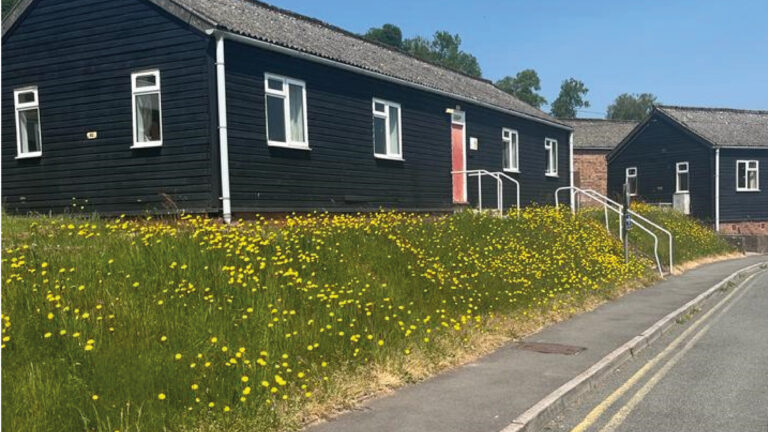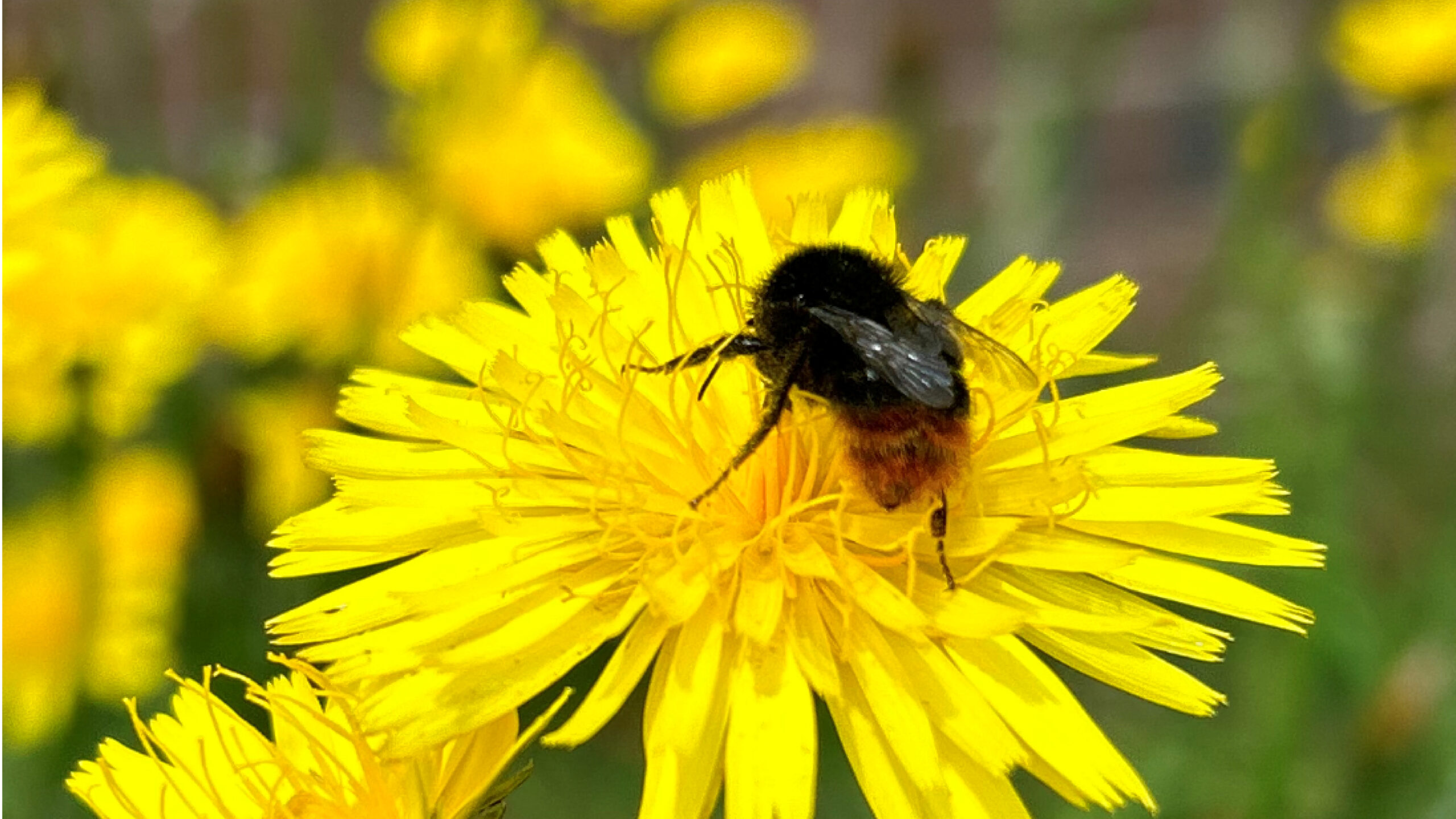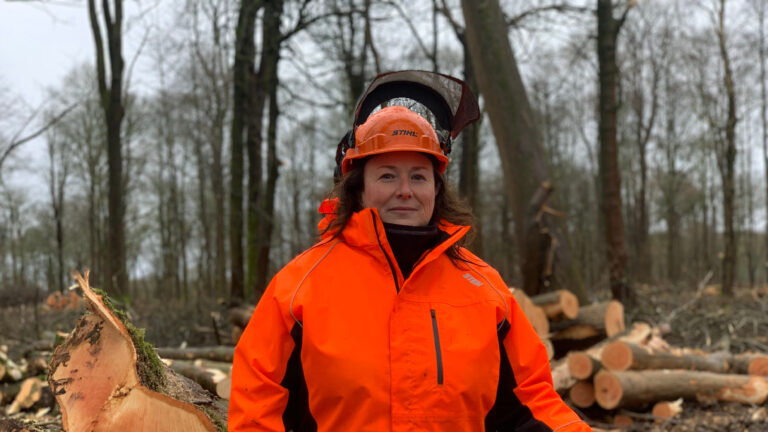

One of the biggest threats to biodiversity is habitat loss, caused by changes in land used for activities such as intensive agriculture, transport infrastructure or urbanisation. Teams at Landmarc and the Defence Infrastructure Organisation (DIO) have been working hard to reverse the trend in declining habitats to help protect the natural environment of the UK’s Defence Training Estate (DTE).
Enhancing biodiversity across rural landscapes forms an important part of the MOD’s Climate Change and Sustainability Strategic Approach, which sets out the threats posed by climate change and how Defence must work to mitigate its impact.
Recently, Landmarc and DIO teams have been working collaboratively to implement “no mow” areas across the estate in order to increase pollinating insect populations.
“No mow” simply involves not mowing designated areas of land, enabling habitats to thrive and encouraging biodiversity. One of Landmarc and DIO’s recent initiatives saw our team contribute to the National Pollinator Strategy through the creation of “B-Lines” at Sennybridge Training Area in Powys, Wales.
B-Lines is a project from the conservation charity, BugLife, aimed at developing a series of ‘insect pathways’ running across the UK with the aim of restoring and creating wildflower-rich habitat steppingstones that link existing wildlife areas together.
Sennybridge Training Area is located at the north of Bannau Brycheiniog (Brecon Beacon) National Park, and so was highlighted as a strategic link to wildlife corridors in Wales. This encouraged Landmarc and DIO teams to identify key locations across the camp to sow wildflower seeds and bee bombs, all funded through Landmarc’s community fund.
Established wildflower areas are now blooming, with a noticeable difference in populations of bees and other pollinating species.
There was a high level of engagement from the Sennybridge team, both through volunteering their time to plant seeds, donating seeds and taking an interest in existing habitats to identify suitable planting areas. Maintenance teams now have a greater awareness of the importance of no mow areas and take care to spot where wildflower areas are developing so that they can leave them uncut and undisturbed to flourish.
This is an enduring project that also directly supports the Action Plan for Pollinators in Wales, helping wildlife to respond to climate change by making it easier for them to move around.
Landmarc strongly believe in its duty to maintain and promote the ecosystem of the Defence Training Estate’s important landscape, providing both a safe and sustainable training environment.




